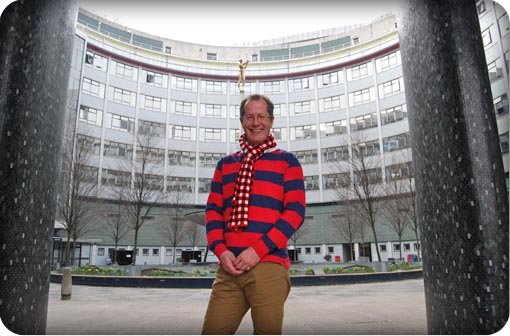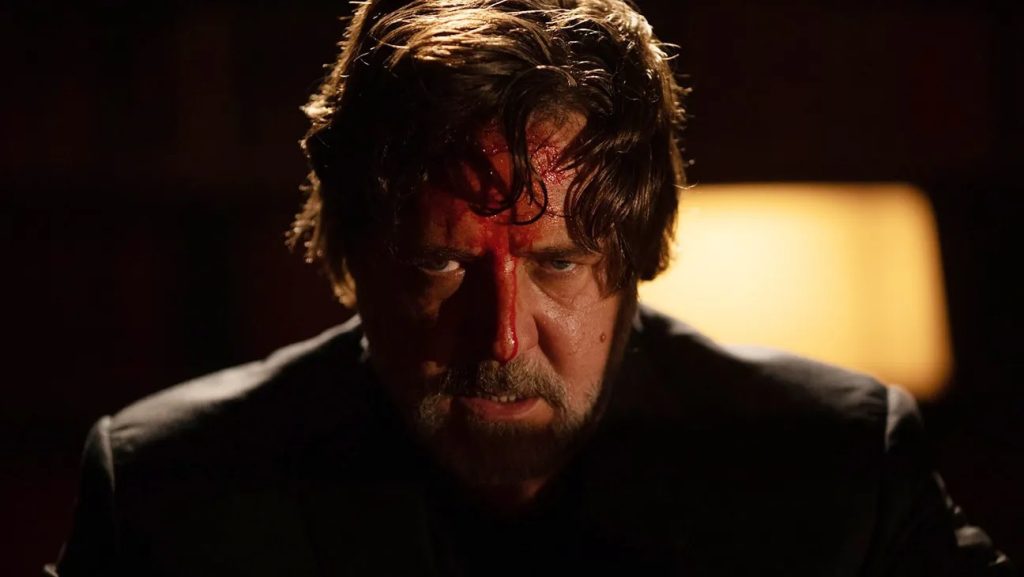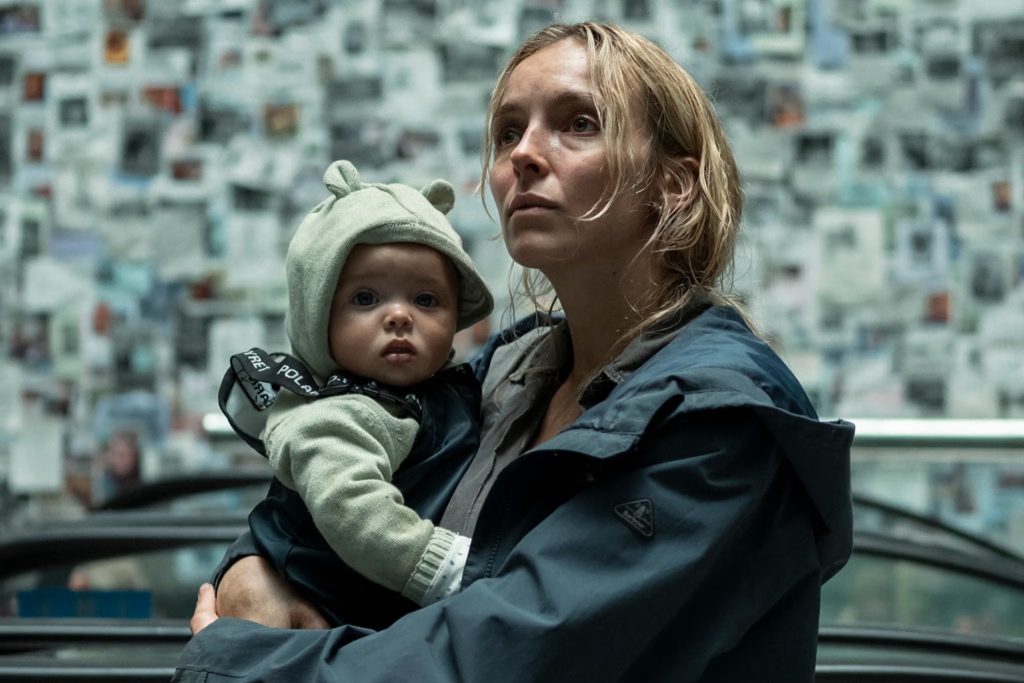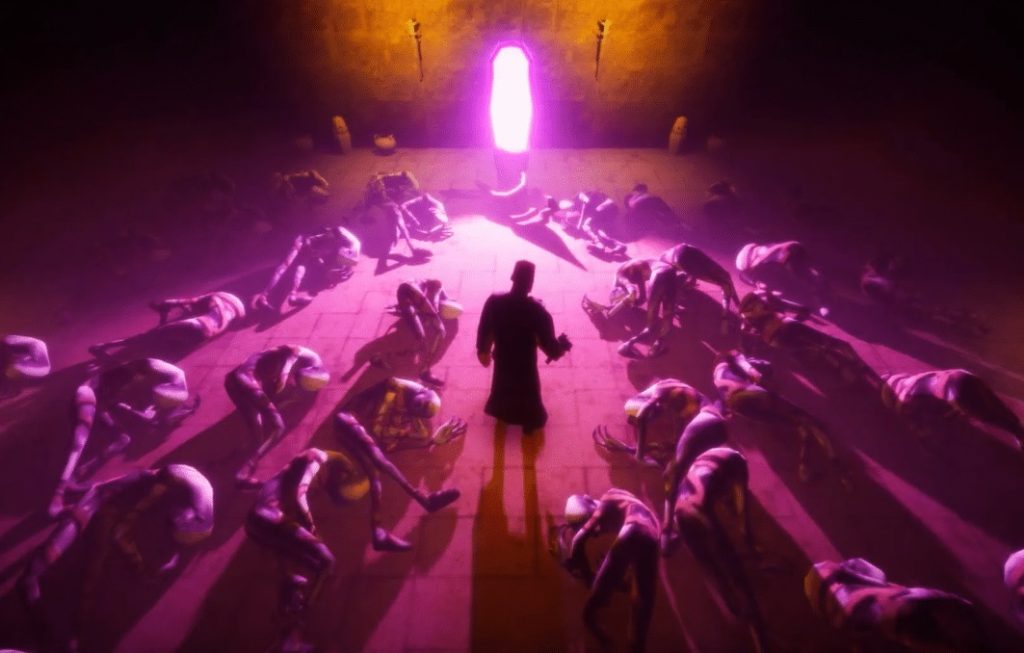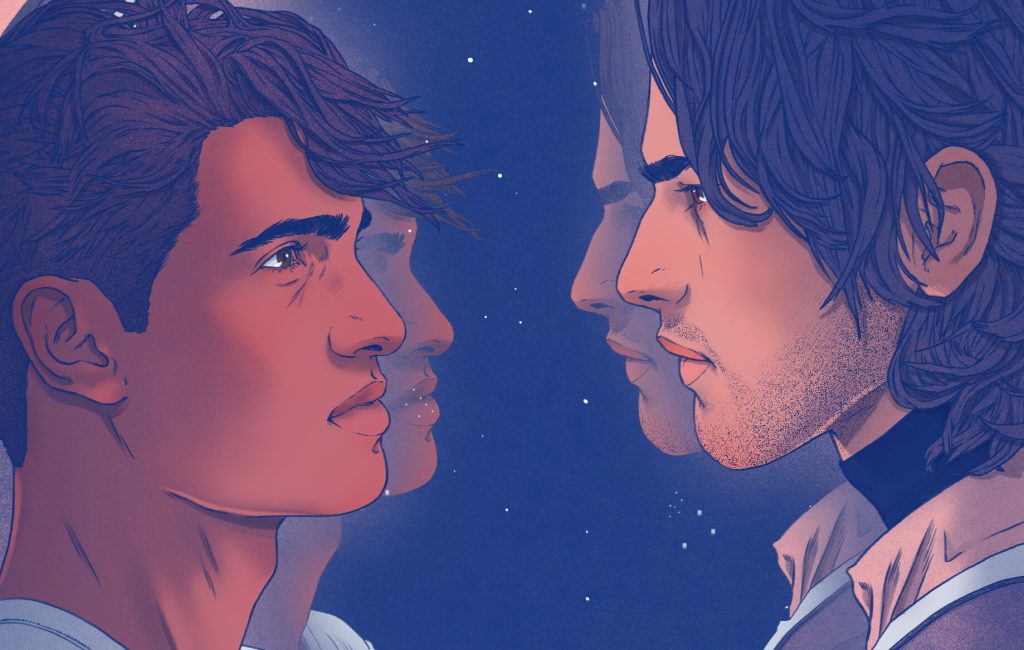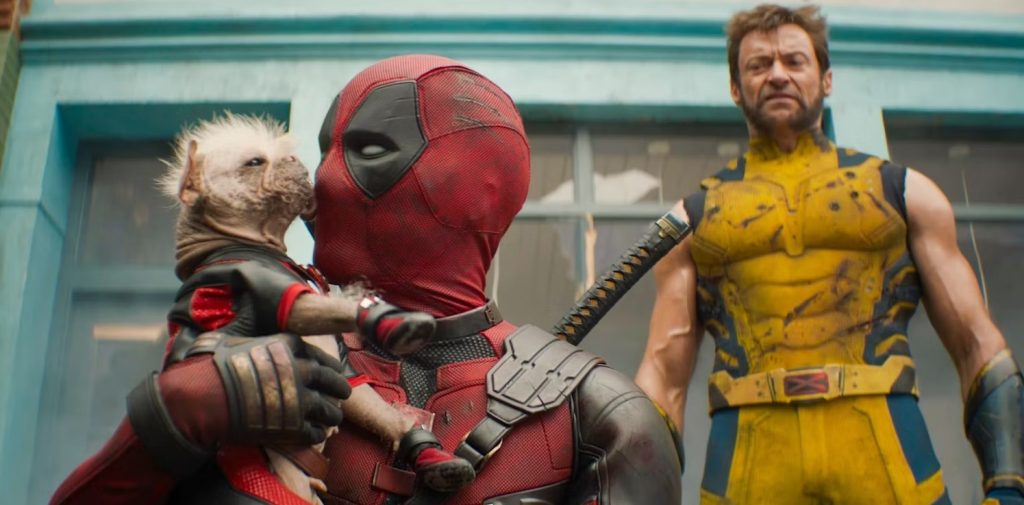
Before moving into television production himself and taking charge of Blue Peter, Richard Marson (pictured above) wrote for Doctor Who Magazine for five years in the 1980s, during the period in which John Nathan-Turner’s stewardship of the programme was proving the most controversial in the show’s history. Starburst recently spoke to Richard about his new book on the subject of the classic series’ last producer, JN-T The Life & Scandalous Times of John Nathan-Turner.
Starburst: How did you feel about the JNT era at the time he was producing the show?
Richard Marson: I guess his era splits fairly easily into three “chunks.” It was really John’s first two seasons that brought me back into Doctor Who and cemented me in fan terms, because I’d lost interest around the Graham Williams period. I’d probably done what most people have done: loved it when I was younger, and then grown out of it. It was only around 1980 that I really got back into it. Of course that was when John was taking over and I really did love his early time, I thought the casting of Peter Davison was just inspired and brilliant. But then the second half of it didn’t work for me at all, and by then of course I was much closer to it, seeing it being made; I suppose that affected my view. Towards the end of it, the latter part of John’s time, the Sylvester stuff really wasn’t for me at all.
So you knew John?
I knew him in the sense that he was at the epicentre of all things Doctor Who in the 1980s, so if you had any meaningful involvement with Doctor Who at all, and of course I spent four-and-a-half years banging out thousands of words of nonsense every month for Doctor Who Magazine, you had to deal with John. John was the root of all news, John’s blue pencil was there and ever handy if he didn’t like what you were writing. So I knew him in that sense, but I didn’t know him socially. I had had an early encounter with him which probably meant that he knew that I wasn’t particularly interested in knowing him socially at that time. I’d love to meet him now. I would love to have the chance to chew the fat with him now, I really would. But sadly, of course, that’s not possible.
An early encounter…?
It’s in the book! You’ll have to read that and see how much it makes your hair curl. I used to tell the story mainly for laughs. It happened after the first time I was invited up to go and see a recording of the show, and he just got a bit frisky, shall we say. I was a bit taken aback, I was only seventeen and at the time he famously said to me, “You’re so fucking provincial.” And of course I was fucking provincial, I came from Bishop’s Stortford, I didn’t know anything about anything! I just thought I was in this kind of Wonderland that was Television Centre, thinking it was an amazing place, and so I wasn’t really prepared for anything very sophisticated.
It’s so hard for people to get their heads around the pre-internet, pre-mobile phone era, but a lot of the time I was working for Marvel, I was a student at Durham, and I had a high old time as a student – lots of socialising, lots of putting on plays, and obviously work somewhere in between. So I quite often used to be hitting my pillow in the early hours, and somebody would come and knock on the door with grim regularity at eleven o’clock in the morning, and they would say, “Marson, they’ve got the BBC on the phone!” We had one pay-phone for the whole college that I was in, in this grotty little kitchenette, mounted on the wall, and I would have to rouse myself, drag on a dressing-gown and go in there, and Sarah Lee, John’s secretary, would be watching the clock and thinking, ‘Where the hell is he?’ and she’d say, “You’re keeping him waiting!” You know when you first wake up and your voice is a bit croaky? John would be put through straight away and it would be, “Hi! How are you?” And of course I realised that I didn’t have a pen to write down the news that he was telling me, so I’d gouge it in the cork-board on the wall, I’d improvise somehow and go frantically back to my room and have to write it up on my creaky old Amstrad. I say creaky; it wasn’t creaky then, it was state-of-the-art. People used to come and knock on my door and say, “Can we have a look at your computer?” I also had a video; I think I was the only student in 1984/85 who had a video, so I used to have parties where people would come round and we’d watch a film or something. And then we’d go out: “Oh it’s that guy; he’s got a VHS recorder.”
Was this book suggested to you, or was it your idea?
It was my idea. Basically, it had a fairly torturous genesis in that I was asked, by more than one publisher, whether I had a Doctor Who book that was worth offering. And of course you sit there and you think, ‘Well it’s a very very saturated marketplace, every possible angle has been covered.’ I went back to thinking, ‘Well, I’d like to write something that I really know about and care about and am interested in.’ I always felt that John, who was such a big, towering figure in Doctor Who, because he died so young I don’t think that he’s really had a fair evaluation. It struck me that it was getting on for a decade since he died, and that’s quite a good period of time in that a lot of people involved are still alive, but enough time’s elapsed for people to have perhaps a bit more of a balanced judgement and perhaps be a bit more even-handed. As I found in the course of the research – I talked to a hundred and ten people – he still had the power to reduce people to quite a gnashing of teeth, and in other cases floods of tears. So I thought he was a very interesting personality, and his time so coincided with my involvement that I thought that was a very good mix.
We’re amazed no one’s really tackled the subject before.
I suppose the problem is that it’s more complex than I’d thought. When I started to research it, I thought I kind of knew the headlines and I did. But you know, I’m a big fan of biographies, I read a lot of them, and I think the best ones – or the ones that aspire to be the better ones – really try to avoid the author telling you what you should think about this person, but have as many primary sources as possible, and really try to be even-handed and get as much of a kind of complex or detailed view as you can. As I started on the research for this I realised that there were a lot of complexities with John, that he was a very tricky individual to capture. One of the hardest things to capture is somebody’s sense of humour, and their charisma. He certainly had tons of charisma and he certainly had a great sense of humour. He was also terrifically kind and generous. But, if you think about it in terms of your own life, if somebody were writing your biography, you know that they would come across things that perhaps you were less proud of or didn’t show you in such a great light. That’s certainly true of John as well.
Did you find out much that you didn’t already know?
Yes. Yes, I think it’s fair to say. I didn’t really know much about his early life; the fact that I tracked down people who taught him, his childhood best friend, and lots of people he met when he was still in his teens, starting out in theatre; I think that really did fill in a lot of the gaps. You know, it’s that old line, “You show me the boy and I’ll show you the man.” I think a lot of the person John later was, and things that he was enthusiastic about, passionate about, were there right from the very beginning of his life. But I also found out an awful lot about how he was before Doctor Who professionally; how highly regarded he was, how so many people thought he was really going to be Controller of BBC1 – you know, he was ‘the boy most likely to’. And in a way, Doctor Who was the worst thing that happened to him. You can certainly form a cogent argument to say that in the end it destroyed him. It was also possibly the ruin of him in his own life; it was a terrifically sad story. I’m not ashamed to say that when I had finished it, and it wasn’t just that I was relieved to get to the end, but when I read the final draft last couple of chapters, I cried a lot – because it was just so remorseless, very sad, and – in the interest of full disclosure, as they say – the other reason I was drawn to write it is that there are parallels in our careers in the sense that he devoted more than a decade to that programme, which was all-consuming, and I devoted a decade of my life and career to Blue Peter. Which in a way is a sort of bed-fellow at the BBC with Doctor Who; it’s another flagship programme that has gone on a very long time, that has had a huge amount of interest. And if you work on it, as we always used to say on Blue Peter, you can always give more, there’s never a point at which you can hold back and say, “That’s where the day ends.” You live, breathe and sleep it; I certainly did and I think that was absolutely true of John. There were a lot of parallels in how the BBC worked, how it can be a bad thing, a toxic thing when your work becomes so much a part of your life, as it certainly did with him.
In a way, you’re both figures that have courted controversy.
I don’t know about courted; I feel like controversy has courted me, rather than the other way around! And I’m sure John would say the same. I tell you what, it did occur to me that it would be impossible for John to function, in the way that he was able to function in the 1980s, now, because the world has changed so much; it’s such a kind of leaky, litigious, tabloid shit-stormy world that a lot of the way that BBC people operated back in those days just simply couldn’t work now. Whether that would be an improvement, I don’t know, but certainly the degree of freedom he had in running Doctor Who… I would say that there’s an argument to be made that one of the reasons things went wrong with Doctor Who was there was such poor management, and such a lack of interest from above, in what John was doing that he wasn’t well supported, and the longer you do something, however good you are, however talented you are, you get tired, you get stale; it’s difficult to keep things fresh and I suspect that as you watch the creative decisions being made, some of those decisions were to do with, “Oh my God, we’ve got another 26 to make, we’ve got to find another Doctor, we’ve got to do this.” So I think that he wasn’t very well supported.
So did you find yourself identifying with him?
Oh yes, sometimes. Yes, definitely. I think anybody who’s spent any significant chunk of their career working right in the heart of the BBC will recognise some of the pressures, some of the privileges; it’s not just the bad things, there are some amazing things – it’s a very lucky place to be able to work. Or it was, in the heyday, because of the freedoms that you had and because of the amazing talent that you get to work with. A lot of the crews who worked on Doctor Who were also the people that I worked with on Blue Peter, and there were some amazingly gifted people. But I think you will see the parallels if you read the book – and I don’t make any bones about it, whether it’s good or bad as to whether I feel there’s some area of common ground, if you like. And it’s helpful when you’re writing somebody’s biography to have some understanding of the pressures they were under or the way in which they worked, because it gives you a greater insight. What I’ve tried to do is to deconstruct or to explain how the BBC worked from within, because I think that’s something that’s very rarely understood. Fans will often be very critical, and why not, about choices of writers or choices of directors, or why was this decision made; very often, there’s a lack of understanding that those decisions were not made perhaps just for creative reasons; there were pragmatic reasons or there were political reasons, and I try and deconstruct that a bit, and make it clearer that John was very much a man who was working within the parameters of the BBC, he wasn’t able to be just a completely free agent.
In some respects, it’s also a horror story.
It depends on your point of view. I don’t think that he thought it was a horror story, I think he probably thought he was having a great time! It is obviously going to divide opinions, but I was so nervous of that aspect of his life, not least because I really didn’t want it to become hijacked. I think if I’d discovered darker things than I did, I might have backed off. But actually, this is not to say that subsequently people won’t come forward and say, “You didn’t know about this,” or, “You didn’t know about that.” But I did a lot of research, and I think what you had was a promiscuous gay bloke in a position where his social life was very actively busy, and he had the opportunity to meet a lot of young people, and did like getting off with young guys. I don’t think he was predatory particularly, I don’t think he forced himself on the unwilling, I haven’t found any evidence of that. I think the whole thing about the age of consent – and you’ve to remember in the 1980s it was 21, which a lot of people at the time thought was extremely unreasonable, and is now obviously in line with the heterosexual age of consent – is it’s controversial and people will be very divided. I found I was much more cautious about his partner Gary, than I was about John. I think John was just a go-with-the-flow, life-is-a-party, you know, “I’ll try it on and if somebody says yes, then that’s up to them.” I have less of a benevolent view of Gary. I think one of the themes of the book is that, in falling in love with Gary Downie and in making his life with Gary, that was another massive issue in terms of the unravelling of his life and career.
How do you think people will react to the book?
I don’t know, it’s hard to tell really. I think if I’d put that at the forefront of my mind I wouldn’t have been able to write it. When you do these things you’ve got to try and trust your own judgement. I did make decisions about what to leave in and what to take out; there was some stuff that I just thought was unnecessary, or too private. There are things that it will be difficult for people to read, and inevitably what will tend to happen is that sometimes people will take what tends to support their view or supports their argument and ignore what doesn’t. And you just have to be fairly resilient about that. I’ve said what I’ve had to say and shown what I’ve uncovered, but as I say I’ve really tried to fairly represent the perspectives of all the people closest to him, his family, his friends, his colleagues; so I’ve tried not to do that thing of, “I won’t include them because I don’t like them.” It was very much an attempt to get everyone around the table, if you like. But there is a lot of stuff in there I think people won’t know, and I think some of it people will struggle with.
And have you come to a new perspective on John yourself?
I think I perhaps have more compassion for him than I did before. I have enormous compassion for how things went for him professionally. You can’t, I don’t think, fail to be affected by the strength of feeling, of loyalty and love that there is expressed for him still, by a lot of people – who give their reasons; they don’t just say, “Oh I liked him,” or “I loved him”; they’ve got reasons. Clearly John was capable of acts of real generosity and thoughtfulness, and in a way that touched people’s lives. And I think he really was a worker; you can argue whether he was the right person for that job, whether he was making the right decisions or not, but he certainly was a work-horse and he really did have certain qualities. The fact that he really understood the global potential of Doctor Who – he was in love with that show, and I have a lot of respect for that.
What were his strengths and weaknesses?
I think his strengths were that he could persuade people to do stuff for him. I think he was very persuasive, very good at getting deals; he was very good with actors, getting the company feeling, making actors feel empowered. I think he was fantastic at playing the BBC system for money, and making a very little go a long way, and I think he was amazing at publicity, amazing at seeing every opportunity for getting the show out there. In terms of weaknesses, you can’t ignore that the big weakness was he didn’t have much narrative sense. He wasn’t really a pure drama person and I think that he could easily be distracted from good storytelling by something about the frocks or the star name or whatever. In that sense he was very reliant on his script editors and writers, and that inevitably meant the results were patchy.
He had a curious habit of ditching experienced hands and giving untested ones a go.
I suspect that towards the end what was happening there was that he was so beaten down by what had gone on, that he slightly kind of thought, ‘Okay, I’ve got nothing left to lose.’ And I think also the other factor is that by 1987, the show was such damaged goods in the industry, that you weren’t going to get really experienced directors and writers who were going to want to do it. Even the writers and directors they got, some of the people I spoke to told me that their agents were saying, “Really? You really think you should be doing Doctor Who?” It was very much a poisoned chalice by then. Whereas earlier on… He was there so long, and circumstances change, that to begin with, when he was the young firebrand, the last thing he wanted was someone who actually he would call the ‘old toots’ telling him, “That’s not how we did it ten years ago.” The other thing is, the sexuality thing is an issue; that was an era where, even in a kind of virtually liberal institution, some of the directors who were around were more, shall we say, old school and wouldn’t have been his type of person. So why would he employ them?
And conversely, they may not have wanted to work with him.
Absolutely. And there’s no doubt, if you were made a producer when you were 31 or 32, and you’ve got a director who’s maybe ten years older and feels a bit disgruntled or whatever – there’s all that stuff going on. The BBC, then as now as probably forever, is absolutely riddled with all sorts of political tensions and goings-on. And all those things have an impact in the day-to-day running of a show like Doctor Who.
I’ve always thought Eric Saward was as responsible for Doctor Who’s troubles…
I would say that the death of Doctor Who was a slow death, and that there was never a point, post-1984, where the show wasn’t going to die. All this is in the book, that the likes of Jonathan Powell and Bill Cotton had given up on it, and I think they only let it stagger on, doing the minimum number of episodes a year, for two reasons. One was because there was money from Worldwide, or Enterprises as it was then, and the other was because they didn’t want the shit-storm of the row with the fans and all of that business, which the BBC have always been scared of; they don’t like bad publicity. Those are the two reasons it limped on a bit, and I think if you’d got Dennis bloody Potter and Tom Stoppard writing Doctor Who and you’d had the best directors, even if the thing had done an artistic u-turn, I think it would still have been cancelled. I just think they didn’t want to do that show. I also think that while John was there, they’d given up on John as well. There’s some astonishingly frank stuff in the book about BBC management’s views on John, and it was – as one of them now says – a very cruel process really, because they just let him wither with the show. So Eric, did he help or did he hinder? I think Eric had his limitations, certainly. The big problem with Eric – and it was one that you could just as easily lay at John’s door – was that these were two very powerful men in their way, who weren’t able to communicate effectively with each other. And I think what happened with Eric certainly didn’t help anybody, least of all Eric in the long-term. I think in artistic terms, he stayed there far too long. The idea that you take a programme off the air for artistic concerns, and then keep the same creative people in charge is a nonsense. It was a nonsense then, it’s a nonsense now. And they knew that and Eric knew that, and I think that Eric was filled with self-loathing, and management made it very difficult for them to make a fresh start. But the dreadful disaster that was the Trial season fed into that, it’s a very painful thing to watch – on every level.
Even without the Doctor Who connection, your book still tells a very interesting story.
Mark Gatiss is currently doing his film about the beginnings of Doctor Who, but actually I think the death of Doctor Who in the 1980s has every ingredient to make a fantastic film, a microcosm of what was happening at the BBC, the changes at the BBC, the personalities involved, the treacheries – but also the loyalty showed people’s good sides too, when things were really under siege. There’s no doubt that had it not been for John, the show would have ended in 1985; there’s no doubt about that. Whether that would have been better in the long term, who knows? But he fought like a tiger in every way he knew how, to keep it going, and was rewarded with redundancy. There are a lot of elements in the period, from 1985 to 1989, that would make a pretty compelling drama in its own right.
Maybe something for the sixtieth, then…
I don’t think they’ll want to do something that doesn’t really reflect the BBC in a great light!
If they did, they’d have to use your book.
They certainly would, and that would be marvellous, for someone to option the film rights – which are available! I think the interesting thing is that there are some areas of fandom, and it was ever thus, that will struggle with the fact that this is a very adult book; it’s uncompromising in the sense that it’s about grown-up life things, not just about Doctor Who. It’s about people’s real lives and feelings, and emotions, and I really did try to get people to be honest and frank in a way that’s unusual in a Doctor Who book. There’s not very much of that hand-clappy, “Hurrah – everything’s marvellous!” stuff, because that fulfils a particular function, but it’s not actually very true.
JN-T – The Life & Scandalous Times of John Nathan-Turner is available to pre-order now from Miwk Publishing and is reviewed HERE.

